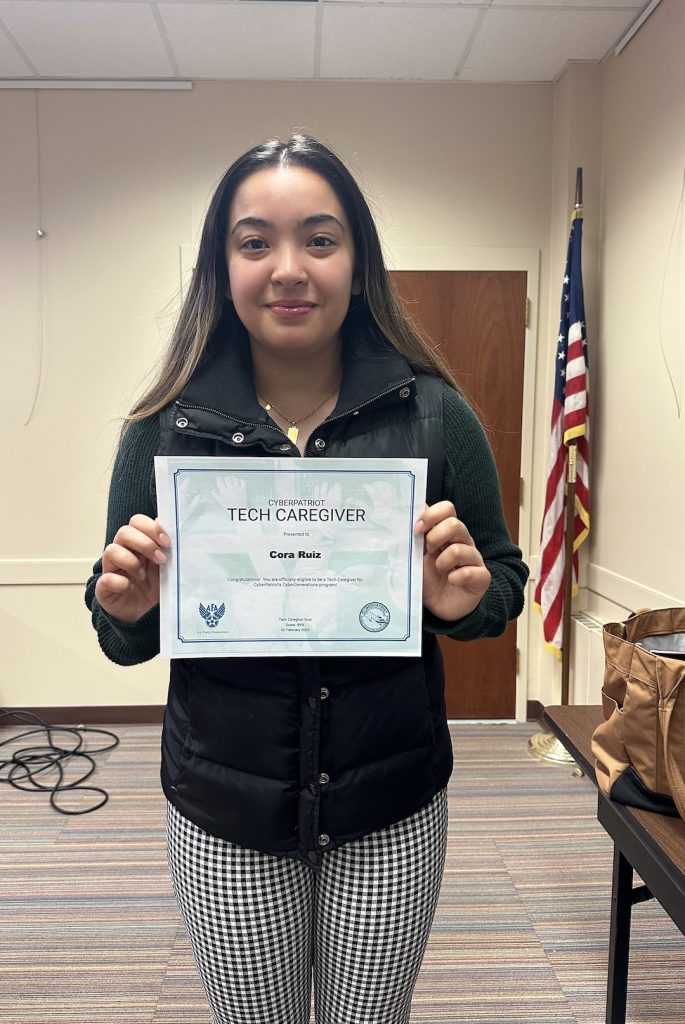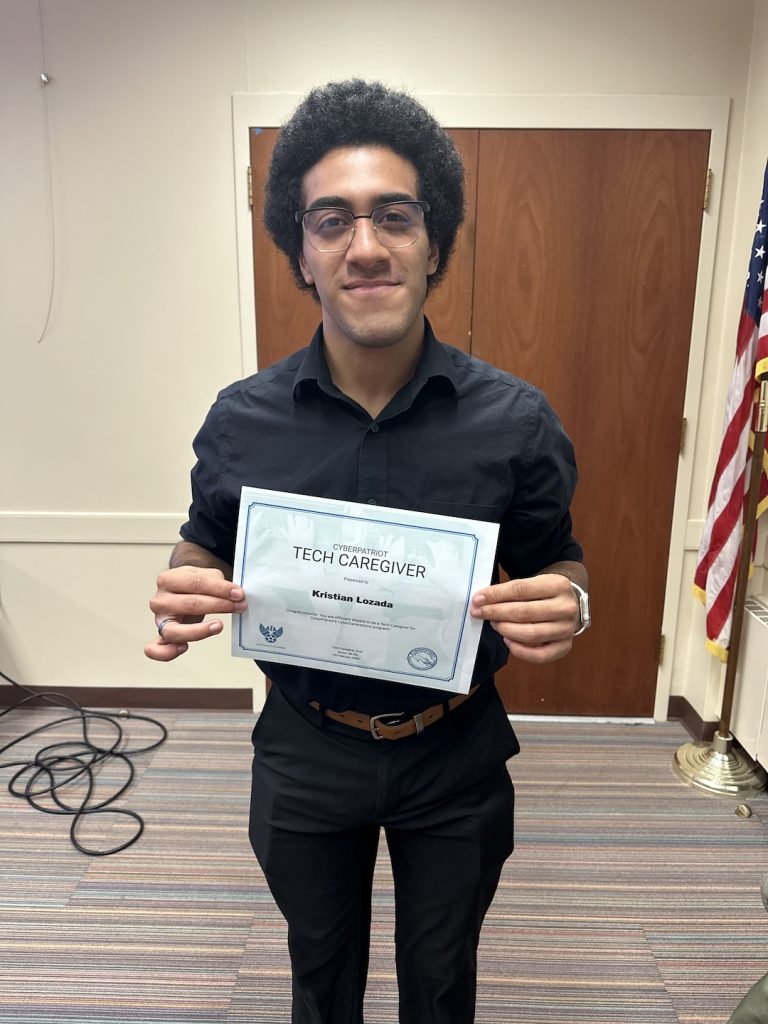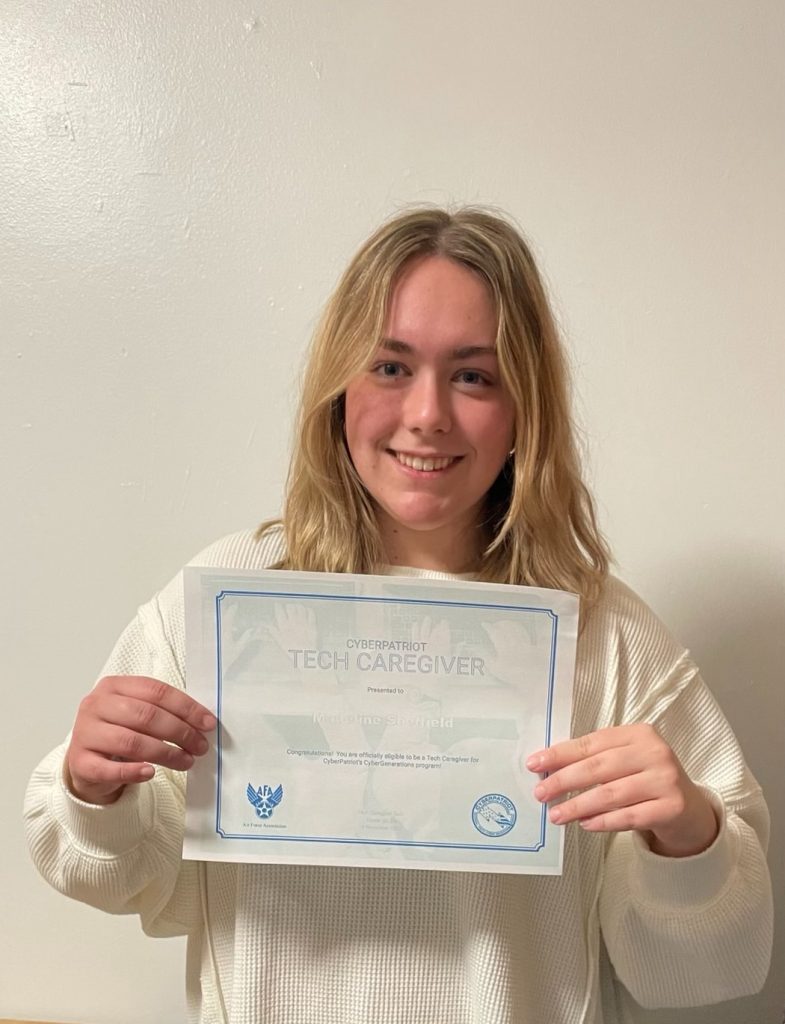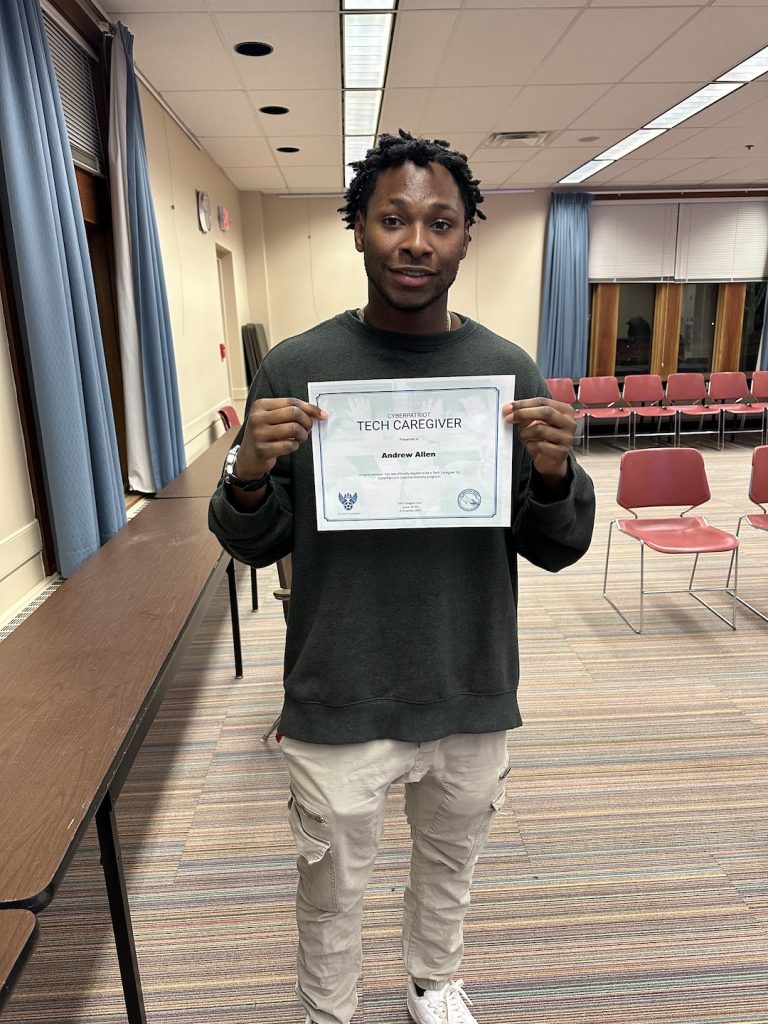Some real-life superheroes are saving senior citizens from being duped by online villains. And they’re coming to the rescue this tax season — a heightened alert time when online enablers and predators seem to be on the prowl even more.
The Albertus Magnus College Cyber Club — known as Cyber Falcons — was established in Fall of 2022 as a way for students to learn, practice, and share cybersecurity knowledge and skills. Today the 10 members have expanded their wingspan to include community presentations at libraries and senior centers in the New Haven region to take-on topics such as online safety, password security, social media vulnerabilities and much, much more.
Guided by faculty whose experience include service as federal agents investigating cybercrime as well as holding advanced degrees in cybersecurity, student members have earned their certificates as Cyber Caregivers under the US Air Force Association’s Cyber Patriot program. They were required to master a wide range of fundamentals and pass a test that certified them to train young and old in protecting themselves and their families online using basic, time-tested protocols. With this newly minted skillset under the wings, the Cyber Falcons are taking flight against fraud. Meet some of the members:
Club President Cora Ruiz ’24: She is a cybersecurity major and has led the club since inception. Cora recently returned from an internship at the US Air Force Research Lab where she researched block chain technology and also interned at Homeland Security Investigations where she assisted Special Agents performing digital forensic exams of child exploitation evidence.
“At the Cyber Club, we participate in ‘Capture the Flag’ competitions where we solve digital puzzles such as code breaking which is called cryptanalysis or do more complicated team efforts such as gaining access to a protected network to find a ‘flag’ which can be a small file with a string of characters or a picture,” she remarked.
Club Vice President Kristian Lozada ’25: Also a cybersecurity major, Kristian’s family hails from Hamden, CT and has a background in the performing arts – an interesting coincidence. Research suggests musicians are particularly suited to computer coding due to their pattern recognition training, which might explain why Kristian has exhibited an advantage in cyber studies.
“We were introduced to specialized hardware such as the Flipper which can capture wireless signals used to open vehicle doors, control flat screen televisions, and duplicate door access swipe cards. Our club also has a Software Defined Radio which uses a common Windows 10 laptop to perform pretty sophisticated digital signal processing that can also capture similar signals, but also plays great music too.” Kristian explained.
Member/Student-Athlete Maddie Sheffield ’26: A native of Saratoga, New York and recent transfer student, Maddie was recruited to play on Albertus’ Women’s Ice Hockey team. She came with a strong foundation in mathematics and felt at home with her cybersecurity coursework.
“Our final project in one of my cybersecurity courses was to develop slide shows to teach cybersecurity best practices to three different audiences: business travelers, hiring managers and senior citizens. For the seniors, the material focused on the cyber attacks that target the elderly such as phishing e-mails that concern health or how to use and remember strong passwords,” she said.
New Recruit Andrew Allen ’27: A native of Bridgeport, Connecticut, Andrew may be brand new, but he is already a veteran of several community service deployments with the Cyber Falcons. He has traveled with the club to public libraries in North Haven and Berlin, Connecticut to present cybersecurity instruction to parents, children, and seniors in which an audience member asked about the best way to deal with unwelcome spam.
“There are different options such as unsubscribing or blocking senders. Legit e-commerce senders will have an unsubscribe link near the bottom of their message, but hackers may use such a link to install malware, so there are nuances,” Allen explained.
Together, this small but mighty club — which is always looking for additional members — team-up to show people how easy it can be to crack a password and compromise an account; issue warnings against deceptive emails that exploit tax filing anxieties; and share information on the safest way to purchase a used computer.
The Cyber Falcon’s most recent presentation took place at the Stratford Library on February 6, 2024 but the group has also shared its knowledge in North Haven and Berlin with more appearances to be scheduled in the near future.




